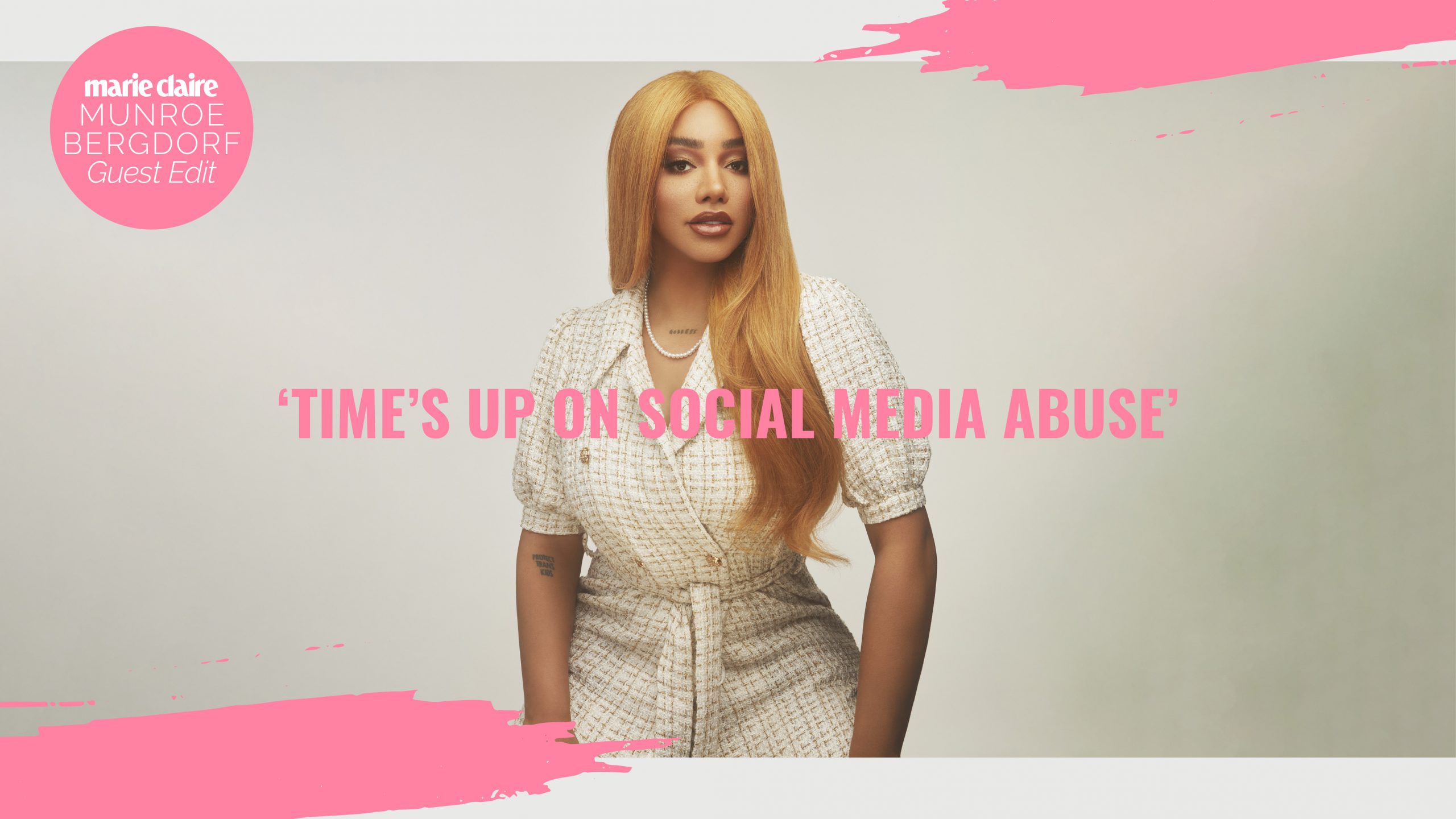Munroe Bergdorf: 'Time's up on social media abuse'
Activist Munroe Bergdorf on why 2021 must be the year of lasting, impactful change online

Activist Munroe Bergdorf on why 2021 must be the year of lasting, impactful change online
In a relatively short space of time, social media has become a far-reaching cyber conduit for activism to take centre stage in the real world.
Perspectives, experiences and issues that have long been silenced, avoided or ignored have now gone mainstream. Much of what was once deemed too controversial to talk about is now unavoidable and undeniable.
From the nuances of racism, to the importance of intersectional feminism and LGBTQIA+ rights.
From the realities of institutionalised sexual abuse, to climate change, to the ways we talk about mental health.
From ableism, to religious intolerance, to poverty.
From how body image and fatphobia impact all our daily lives.
Celebrity news, beauty, fashion advice, and fascinating features, delivered straight to your inbox!
Activism has shifted from being seen at large as an optional progressive concept, to now proving itself as a crucial and accessible catalyst for overdue systemic change.
Shifting landscapes
Over the past ten years or so, the way in which we use social media has evolved.
Social consciousness has become as normal as sharing pictures of your cat or freshly baked banana bread
With everyone from world leaders to corporations, celebrities and even our very own workplaces speaking up in support - or at the very least, in acknowledgement of - the impact that online-originating movements such as #BlackLivesMatter and #MeToo, have had and continue to have on how we interact with and understand each other.
Social media has helped to make these conversations more accessible and understandable, as we are able to follow, share and hear directly from people whose lived experiences differ greatly from our own. We are able to action our empathy with support for issues that may not be covered by, or are yet to have gained the attention of the mainstream news networks.
We are also able to hold these networks accountable for insensitive, biased or inaccurate reporting in way that we have never seen before.
Time's Up for trolling
But all this exciting progress does not come without its downsides.
Abuse and harassment are increasingly rife on social media
Many users of marginalised identities, myself included, feeling that social media giants simply aren’t doing enough to combat the rampant hate on the platforms that have become entwined into our every day lives.
Last month I decided to delete my Twitter account. I was receiving daily transphobic and racist-focused hatred and little was being done about it, even when it was reported. So I know first-hand the draining impact that this can have on somebody’s mental health.
I find it strange and frustrating that an algorithm can be developed to recognise a nipple that is perceived to belong to a woman with the aim of deleting it almost as quickly as it was uploaded. Yet I can be called the N word, or intentionally misgendered in multiple comment sections and nothing will be done for hours, if at all.
It’s all well and good banning the accounts of high profile users that incite hatred, like Donald Trump or Katie Hopkins, but what about developing software that protects marginalised users from the omnipresent and incessant hate fired at them from multiple faceless profiles, that have been set up purely with the intention to troll and abuse others?
The future of social
It would be naïve to think that all this progress as a result of us becoming more connected, organised, informed and validated through social media, would come without resistance or debate.
But hate speech is not an opinion
Racism is not diversity of thought, harassment is not an acceptable response, sexism and misogyny are not valid alternative viewpoints.
Clamping down on users who choose to abuse others is not limiting freedom of speech. Social media giants have a duty of care that is simply not being met, especially during this time during lockdown, when we are all existing more and more via our smartphone screens.
Yes, social media has been a marvel for facilitating conversations that were well overdue, but marginalised users cannot be expected to navigate the wild west. It’s time for big tech giants to step up and invest in a future where progress is not only being organised on their platforms, but they themselves begin to invest in progressive technology that works to keep their users safe from abuse, hate and harm.
Time's up.
Munroe Bergdorf is an English model and activist, a UK Changemaker for UN Women charity, and LGBTQ+ Editor at Dazed Beauty - more on her Instagram @munroebergdorf. Check out the rest of our International Women's Day content while you're here, on site and on social at @marieclaireuk.
Sophie Goddard is the Entertainment Editor of Marie Claire UK, as well as working across other titles in a freelance capacity. She has over 10 years journalism experience working on both digital and print platforms and prior to Marie Claire, worked at Glamour and Cosmopolitan magazine. Sophie writes about a number of topics, specialising in celebrity interviews and features. At Marie Claire, she is responsible for booking and interviewing cover stars and other celebrity interviews and is always open to pitches from publicists (she is always open to discussing sausage dogs, too).